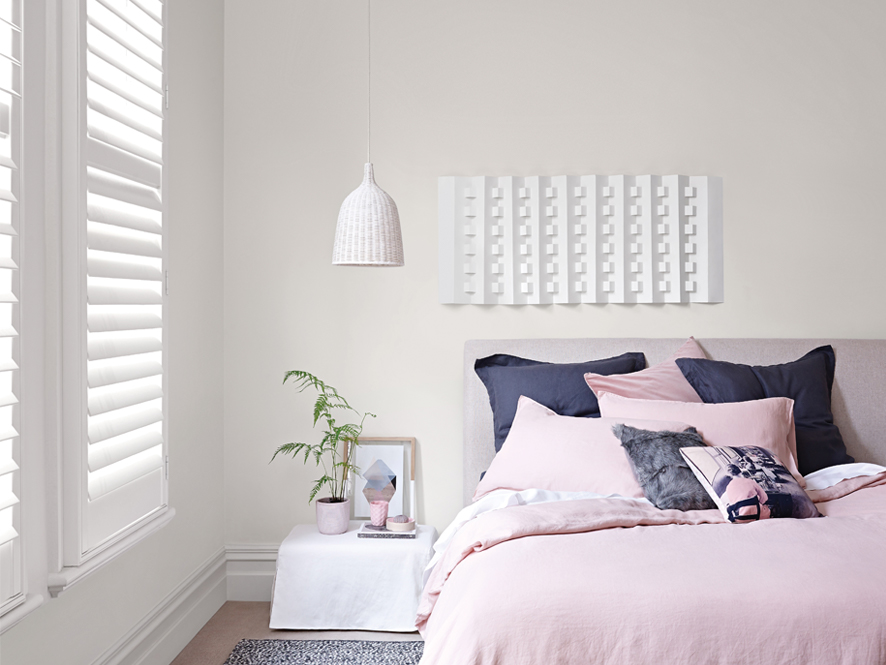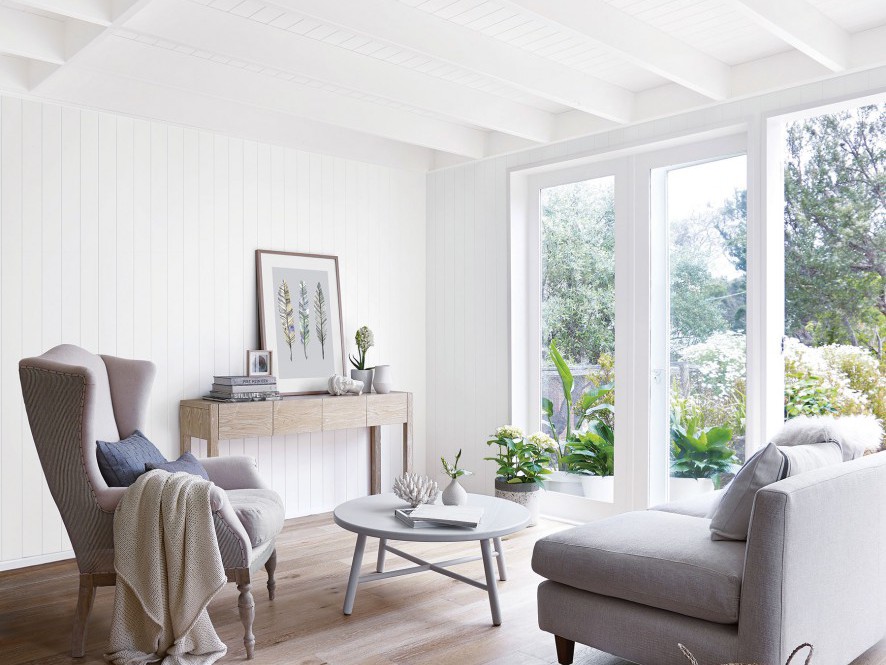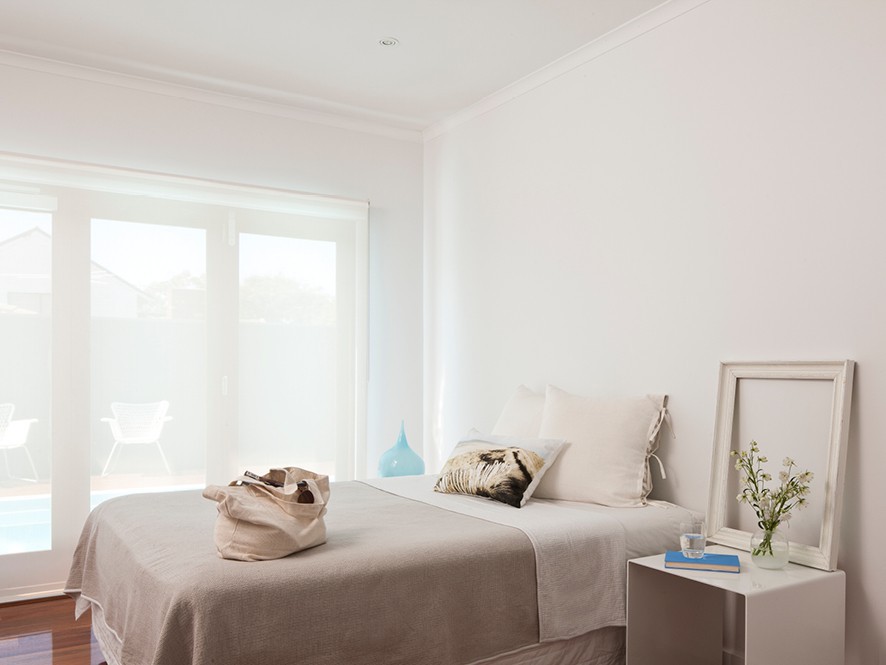Choosing the Right White
White seems like the easiest, safest and most straight-forward way to go when choosing paint colours. For that reason many home-owners start their painting project by saying they are going to paint their house simply ‘off-white’, only to find themselves bamboozled by the seemingly endless spectrum of white paint on offer.
Here’s a few questions to ask yourself to help find which white is right for you.
Old or new?
There are some whites that better suit minimalist modern interiors and others that better suit more ornate traditional interiors. Dulux Colour Planning & Communications Manager Andrea Lucena-Orr says that cooler whites tend to suit more modern or contemporary spaces, whereas the creams or yellowish whites often lend themselves more traditional properties.

“The main reason for this is that most modern or contemporary homes have lots of natural light and many windows,” Andrea says. “However, older homes tend to have smaller or not as many windows with lower natural light. Therefore, using whites with more yellow tones creates a warmer feel and greater light reflectance in a more enclosed space.”
Which white for that light?
Anyone who has worked in an office can testify to the washed-out effect of fluorescent lights. That’s why it is important to take the light source into account when choosing a white for your home. How does the light affect the area at different times of the day? What about when the overhead lights are on, or just lamps?
The move to energy efficient globes has had an effect on the colour of light in our homes. As Andrea says, “Now with the energy efficient fluorescent globes it is even more crucial to understand colour and lighting. You can get these globes in a ‘warm white’ rather than the standard globes and this does make a difference to your colour. The standard globes do give a cooler white light; therefore colours won't look as warm as they should.”
Which white is right for your décor?
Surely, a beige carpet will always complement a white wall – right? Not entirely. Sometimes the undertone of a white or neutral is not obvious until you put it against a white or neutral with a contrasting undertone. Every colour has different undertones so when we put a beige carpet with a green undertone against a white wall with a pink undertone the effect can be different than what we expect.

Andrea suggests placing the colour chip next to items in your home so the colour responds as it would on the wall. Andrea also suggests a handy tip of using a grey colour chip to get to the truth of the matter. “Neutral grey is the best ‘non-colour’ to use when trying to understand the natural undertone in a particular colour,” she says.
What if I just want white – plain white?
Some people are on a quest for the purest version of white, with the least clue of an undertone. Andrea advises, “the ‘whitest white’ is between Dulux Lexicon Quarter or Dulux White on White.” Of course, when all is said and done, the right white for your home is the one that you feel most inclined towards.
.